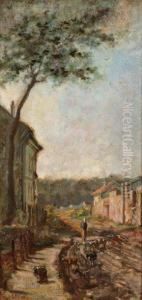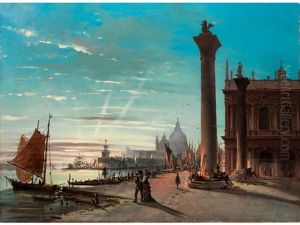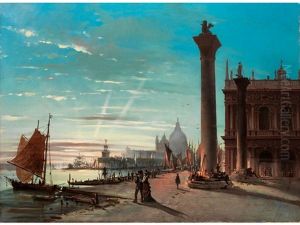Ernest Pillon Paintings
Ernest Pillon was a French composer and organist, whose life spanned the turn of the 20th century, a period marked by significant changes in the arts and music. Born in 1870, Pillon was part of a generation of musicians who were active during a time of great transition in European classical music, moving from the romanticism of the 19th century to the modernism of the 20th century. Despite being less well-known today than some of his contemporaries, Pillon contributed to the musical landscape of his time with a body of work that includes chamber music, vocal music, and compositions for organ.
Pillon's musical education and career were deeply rooted in the rich cultural environment of France, a country renowned for its contributions to classical music. He was known for his skill as an organist, a tradition with a long and distinguished history in France, home to other great organist-composers like César Franck and Charles-Marie Widor. Pillon’s compositions often reflected the qualities associated with French organ music, such as clarity of form, elegance, and a preference for color and texture over sheer volume.
Throughout his career, Pillon remained relatively conservative in his compositional style, often focusing on the beauty of melody and harmony rather than adopting the more radical techniques that characterized the work of some of his contemporaries. This conservatism might explain why his music, though respected, did not gain the same level of recognition as that of more innovative composers of his time. Nevertheless, his work was appreciated by those who valued the continuity of the French musical tradition.
Ernest Pillon passed away in 1943, leaving behind a modest but meaningful legacy within the realm of French classical music. His compositions, though not widely performed today, offer insight into the transitional period of music history in which he lived. They serve as a reminder of the diverse voices that contribute to the evolution of artistic expression, even if some of those voices do not echo as loudly through history as others.


